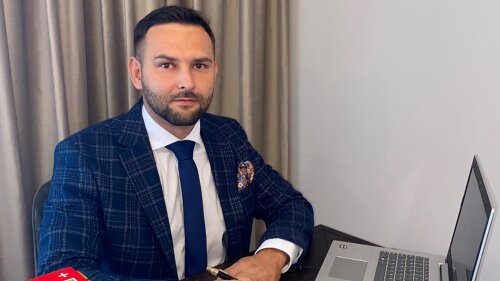Best Juvenile Law Lawyers in Chełm
Share your needs with us, get contacted by law firms.
Free. Takes 2 min.
List of the best lawyers in Chełm, Poland
About Juvenile Law in Chełm, Poland
Juvenile Law in Chełm, Poland is a specialized branch of law dealing with minors who are in conflict with the law or require care and protection. The objective is not only to hold juveniles accountable for unlawful behavior but also to provide guidance, rehabilitation, and support to help them reintegrate into society. Proceedings concerning minors are different from those concerning adults, both in substance and procedure, and are governed by specific regulations under Polish law.
Why You May Need a Lawyer
There are numerous situations where legal assistance may be essential in Juvenile Law matters in Chełm. Some common scenarios include:
- If a minor is accused of committing a criminal or status offense
- When parents or guardians are summoned to family or juvenile court
- If a child is facing protective or educational measures imposed by the court
- In matters of child custody or parental rights involving social services
- When a minor has been placed in institutional care or foster care
- Concerning decisions about contact with family members
- For cases involving truancy, substance abuse, or behavioral problems at school
- When a child is a victim or a witness in legal proceedings
A lawyer can safeguard the rights of the minor and their family, ensuring fair treatment during investigations, court hearings, and the implementation of any imposed measures.
Local Laws Overview
Juvenile Law in Poland, including Chełm, is primarily governed by the Act on Proceedings in Juvenile Cases and the Family and Guardianship Code. In Chełm, as in the rest of Poland, specialized family courts deal with juvenile matters. Key aspects include:
- Persons under 17 years old are generally treated as juveniles in criminal matters, and those between 17 and 21 may still face juvenile proceedings based on circumstances
- The focus is on educational and protective measures rather than punishment
- Proceedings are confidential to protect the privacy of the minor
- Courts may order therapies, supervision, social work, or placement in youth care facilities instead of incarceration
- Parents or guardians typically participate in proceedings and decisions
- Victims have special rights when children are involved in a case
Frequently Asked Questions
What is considered a juvenile under Polish law?
A juvenile is generally a person under 17 years old for criminal cases, though the court may apply juvenile procedures to older youths in specific scenarios up to 21 years old.
Can a juvenile be sent to prison in Chełm?
Imprisonment for minors is extremely rare. The law emphasizes educational and rehabilitative measures. In serious cases, juveniles may be sent to youth detention centers, but only if other forms of support have failed.
Are juvenile proceedings public in Chełm?
No, proceedings involving minors are confidential to protect the privacy and best interests of the juvenile.
What role do parents or guardians have during juvenile proceedings?
Parents or guardians are involved throughout the process, providing information, supporting the child, and representing the minor’s interests in court.
Can a juvenile have a lawyer?
Yes, juveniles have the right to legal representation. In some cases, the court may appoint a lawyer if the family cannot afford one.
What types of measures can the court impose on a juvenile?
Possible measures include supervision by a probation officer, therapy, community service, placement in a care facility, or other educational and corrective steps.
What happens if a minor is also a victim?
When minors are victims, special protections ensure their comfort and safety during legal proceedings, including psychological support and closed hearings.
How does the school system interact with juvenile law?
Schools are often involved when juvenile cases arise, providing assessments, participating in planning corrective measures, and working with social services.
When are social services involved?
Social services step in if a child's well-being is threatened or if support is needed at home, sometimes making recommendations to the court regarding a child’s situation.
Can decisions made by the juvenile court be appealed?
Yes, decisions can be appealed by the minor, their legal representative, or the prosecutor within prescribed deadlines.
Additional Resources
Individuals seeking information or support in matters of Juvenile Law in Chełm, Poland, can turn to the following resources:
- The Family Court in Chełm (Sąd Rodzinny w Chełmie) - for official proceedings and legal filings
- Municipal Social Welfare Center (Miejski Ośrodek Pomocy Społecznej, MOPS) - for family support and intervention
- Police Juvenile Division (Wydział ds. Nieletnich Policji) - for cases involving offenses or endangerment
- School Pedagogical and Psychological Counseling Centers (Poradnia Psychologiczno-Pedagogiczna) - for guidance and assessments
- Children’s Rights Ombudsman (Rzecznik Praw Dziecka) - for advocacy and protection of children’s rights
- Legal aid clinics and non-governmental organizations offering free or low-cost legal advice
Next Steps
If you or your child are involved in a Juvenile Law matter in Chełm, the following steps are recommended:
- Stay calm and gather all relevant documents pertaining to your case
- Contact a lawyer with experience in Juvenile Law to discuss your situation as soon as possible
- Reach out to local support resources, such as the Municipal Social Welfare Center or school counselors
- Attend all scheduled court hearings or meetings and comply with court orders
- If finances are a concern, inquire about free legal aid available to families and minors
- Ask for written explanations and maintain records of all proceedings
Prompt and informed action ensures that your rights and the rights of the juvenile are protected throughout the process. Legal professionals can provide tailored guidance to help you understand your options and achieve the best possible outcome.
Lawzana helps you find the best lawyers and law firms in Chełm through a curated and pre-screened list of qualified legal professionals. Our platform offers rankings and detailed profiles of attorneys and law firms, allowing you to compare based on practice areas, including Juvenile Law, experience, and client feedback.
Each profile includes a description of the firm's areas of practice, client reviews, team members and partners, year of establishment, spoken languages, office locations, contact information, social media presence, and any published articles or resources. Most firms on our platform speak English and are experienced in both local and international legal matters.
Get a quote from top-rated law firms in Chełm, Poland — quickly, securely, and without unnecessary hassle.
Disclaimer:
The information provided on this page is for general informational purposes only and does not constitute legal advice. While we strive to ensure the accuracy and relevance of the content, legal information may change over time, and interpretations of the law can vary. You should always consult with a qualified legal professional for advice specific to your situation.
We disclaim all liability for actions taken or not taken based on the content of this page. If you believe any information is incorrect or outdated, please contact us, and we will review and update it where appropriate.










